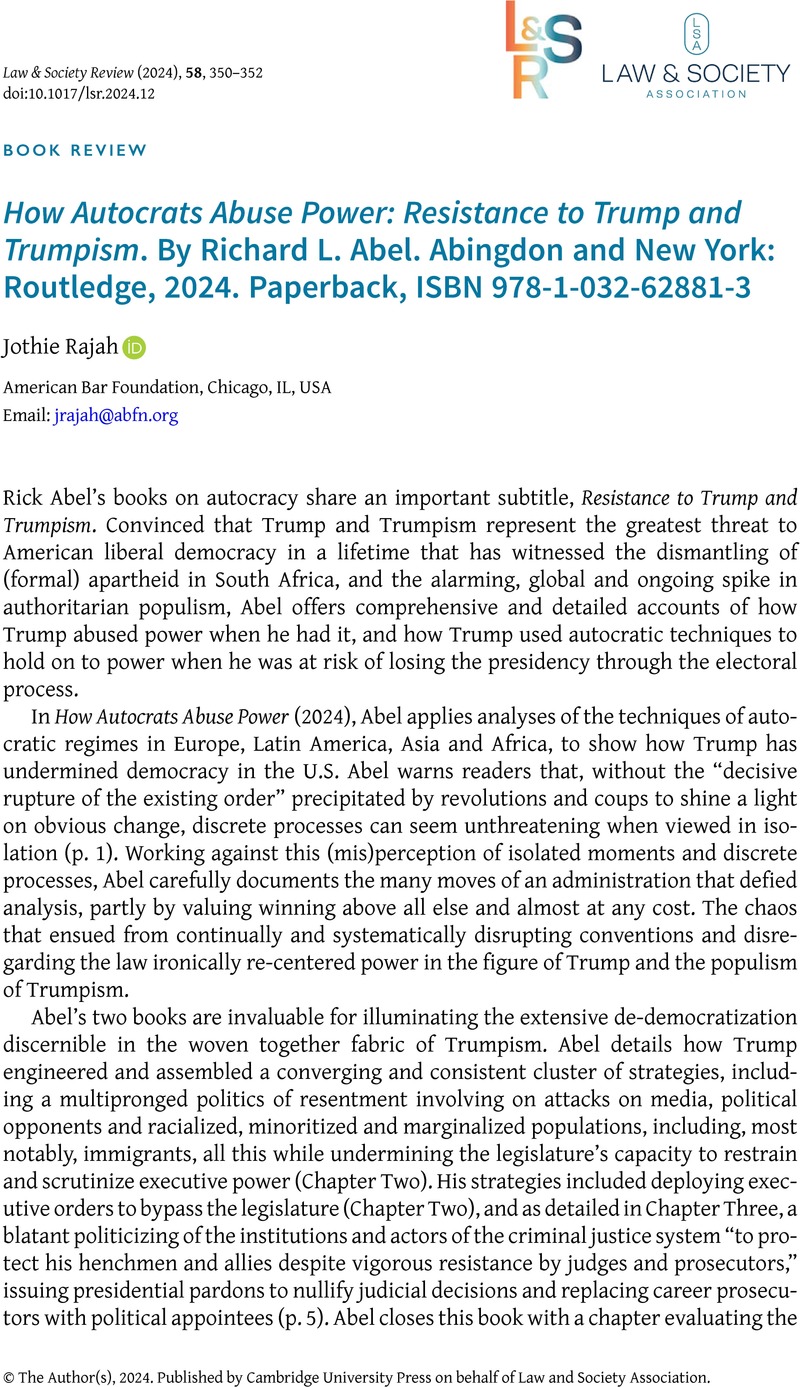No CrossRef data available.
Article contents
How Autocrats Abuse Power: Resistance to Trump and Trumpism. By Richard L. Abel. Abingdon and New York: Routledge, 2024. Paperback, ISBN 978-1-032-62881-3
Review products
How Autocrats Abuse Power: Resistance to Trump and Trumpism. By Richard L. Abel. Abingdon and New York: Routledge, 2024. Paperback, ISBN 978-1-032-62881-3
Published online by Cambridge University Press: 10 May 2024
Abstract
An abstract is not available for this content so a preview has been provided. Please use the Get access link above for information on how to access this content.

Information
- Type
- Book Review
- Information
- Copyright
- © The Author(s), 2024. Published by Cambridge University Press on behalf of Law and Society Association.
References
Abel, Richard L. 2018. Law’s Trials: The Performance of Legal Institutions in the US “War on Terror”. New York: Cambridge University Press.CrossRefGoogle Scholar
Abel, Richard L. 2023. How Autocrats Attack Expertise: Resistance to Trump and Trumpism. Abingdon and New York: Routledge.CrossRefGoogle Scholar


